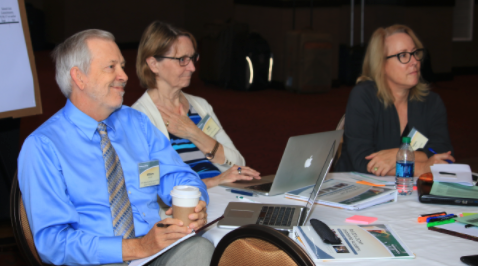| Name | Title | Institution |
| Andrea Cahan | Mathematics Faculty | Everett Community College |
| Kendra Feinstein | Mathematics Faculty | Tacoma Community College |
| Bev Vredevelt | Mathematics Faculty | Spokane Falls Community College |


| Name | Title | Institution |
| Andrea Cahan | Mathematics Faculty | Everett Community College |
| Kendra Feinstein | Mathematics Faculty | Tacoma Community College |
| Bev Vredevelt | Mathematics Faculty | Spokane Falls Community College |
| Name | Title | Institution |
| Rosalie Tepper | Director of Math Learning Center | Shoreline Community College |
| Sarah Adams | STEM Math Instructional Specialist | Big Bend Community College |
| Patrick Averbeck | Department Head | Edmonds Community College |
| Jane Muhich | Mathematics Faculty | Seattle Central College |
| Pete Wildman | Mathematics Faculty | Spokane Falls Community College |
| Vaughn Foster-Grahler | Mathematics Faculty | The Evergreen State College |
| Katherine Lewis | Assistant Professor, Mathematics | University of Washington |
| Aaron Montgomery | Professor of Mathematics | Central Washington University |
| Chuck Moore | Professor and Chair, Mathematics | Washington State University |
| Jessica Cohen | Assistant Professor, Mathematics | Western Washington University |
| Jeff Wagnitz | Vice President, Academic Affairs | Highline College |
| Ata Karim | Vice President, Student Affairs | Bellevue College |
| Peter G. Williams | Dean of STEM | Clark College |
| Ed Harri | Dean for Instruction | Whatcom Community College |
| Devin DuPree | Policy Associate | Washington State Board for Community and Technical Colleges |
| Joyce Hammer | Director of Transfer Education | Washington State Board for Community and Technical Colleges |
| Julie Garver | Director of Policy & Academic Affairs | Council of Presidents |
| Randy Spaulding | Director of Academic Affairs & Policy | Washington Student Achievement Council |

The state of Washington has a systemic mathematics policy in place, via articulated math pathways described in the Direct Transfer Agreement (DTA) as well as a statewide math strategic plan framed around the notion of math pathways. However, three critical problems need to be addressed in order to scale math pathways in the state. In spring 2016, the Washington State Mathematics Pathways Task Force was charged with addressing these problems by:
In February 2017, the Task Force published its report -- Washington Math Pathways to Completion Task Force -- which identified five specific recommendations and strategies committed to dramatically improve the success of students in developmental and gateway mathematics courses. These five recommendations include:
In Fall 2017, 8 two-year institutions and 2 four-year institutions committed to implement mathematics pathways in Fall 2018. See Summary of Institutional Commitments for Washingtonview full resourceView Full ResourceDownloadFile for more information about who committed and institutional expectations to implement mathematics pathways.
For more details on the work in Washington see this Washington Math Pathways site.
Analysis and “backward mapping” of data illuminate natural pathways students are taking to fulfill their math requirements. This approach informs a state-level data framework to address transfer inconsistencies between two-year and four-year institutions.

Select a state to learn more about how local leaders are setting a vision for math pathways or read an analysis of math pathways work across multiple states.